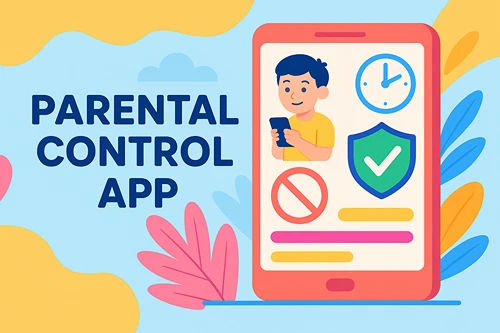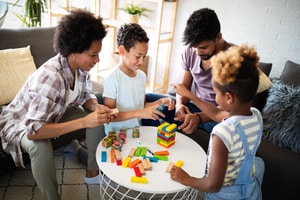11 Positive Effects of Divorce on Children and How to Enhance Them
Divorce can drive a wedge between any family and no child wants their parents to separate. Children may become distraught with the idea of their parents getting divorced. The effects of a divorce can cause strife throughout divorce proceedings.
Many couples feel the emotional strain of getting divorced, especially once they consider the effects that divorce has on their children. Each child handles divorce differently. Some children may require more intervention to benefit from the positive aspects of divorce. With the right interventions, your child can avoid the traumas associated with divorce.
Initially, it can be challenging to envision how divorce could have positive effects on your child but divorce can encourage children to become more resilient, develop healthy stress management skills, and create new bonds with their parents.
When parents are considering permanent marital separation, it can be imperative to consult with a divorce attorney. Working with a professional could help you do what’s best for your child and handle your divorce amicably. Proper guidance can ensure you consider all of the effects divorce may have on your family.
Here are the positive effects divorce can have on children.
Removal From a Toxic Environment
One of the most important ways divorces can benefit children is that it removes them from potentially abusive and toxic environments. If a marriage becomes abusive or violent, divorce can be a saving grace. Children can escape the harmful atmosphere and avoid the damaging effects on their mental and emotional health.
Children raised in abusive environments face a risk of developing mental health issues, behavioral issues, and even being abusive in the future. If correctly handled, divorce can ensure that children have a safe and stable environment to heal and recover from the traumatic nature of their parents’ toxic relationship.
Healthy Communication and Coping
A successful divorce requires some collaboration on behalf of both partners when children are involved. This collaboration offers both spouses an opportunity to show conflict resolution skills. If your child witnesses you practice healthy communication with your soon-to-be ex-spouse, this can instill in them the importance of having calm interactions with others, even when you disagree.
Generally, you’ll have to continue co-parenting with your ex, so it benefits everyone involved when parents can remain civil, model positive communication, and establish healthy co-parenting routines with their former spouse.
Speaking ill about a former spouse can cloud the child’s opinion of their parent and harm their relationship. Trashing your ex in front of your child may ruin all of the positive effects that divorce can have on your children.
Decreasing Tension
Spousal disputes can charge your family’s environment with animosity. Marital hostility can be distressing for your children. When parents decide divorce is best, those tensions may decrease. Since children are perceptive, reducing tensions can foster a turmoil-free, emotionally stable environment.
Children can sense when something is off, so it’s important to dissolve the tension to allow children to flourish. When parents split, this can release the tension and allow their children to have improved relationships with each parent.
Improvement in Family and Child Relations
It’s not abnormal for one parent to be more involved with their child in a marriage. This could mean that one parent is there to assist with all of the day-to-day needs of the child while the other works or focuses on other things that provide for the family. However, after a divorce, both parents tend to become more involved in their child’s life.
Co-parenting typically encourages parents to share parental duties with their children and become more involved in their lives. Children whose parents are invested in their safety and interests tend to feel happier and become more confident in themselves.
Divorces can also encourage deeper relationships among siblings. Since siblings typically share the divorce experience, they can express their feelings and offer the necessary support. Older siblings can typically help younger children understand what’s going on and what they’re feeling.
One-On-One Time With Each Parent
When divorces occur, children often benefit from having more one-on-one time with each of their parents. As children develop, the individual attention of each parent allows them to learn crucial life skills from each of their parents. Children can also benefit from the additional time spent and effort required by each parent.
Understand Healthy Relationships and Boundaries
When divorced parents show their children that they need enjoyable and validating relationships, they demonstrate that settling for unhealthy or unhappy relationships is counterproductive. When divorced parents find new relationships, their children witness their happiness and notice the positive effects of being in a harmonious relationship. Children of divorced parents flourish by watching their parents have positive interactions with others.
Important Life Lessons
A divorce can provide essential life lessons for children. Not all friendships, relationships, and marriages stand the test of time. Children witness how staying in a failing relationship has negative repercussions. When children learn important crisis management and conflict resolution skills, they learn to choose respect, even if they disagree with someone.
Since children monitor everything their parents do and often hold them in high esteem, the behaviors that you model for them will affect their personality for the rest of their lives. Use divorce as a teaching tool to show that even relationships that don’t work out can still have a positive effect on everyone involved.
Organization and Time Management
Most children won’t enjoy having to go back and forth between different households. However, when children have to travel between two homes, they learn how to take care of their things, which items are essential, and how to keep track of their possessions. This can be a great teaching tool for young adulthood.
Resilience
Mental fortitude, like any skill, can be developed with practice. When children have to adjust to big changes, like divorce, those children learn that sadness won’t change their situation. They also learn to adapt their mindset and practice fortitude in tough times.
As a parent, you can facilitate your child’s resilience by helping them adjust to a new version of normal. Harvard University found that children develop resilience when they have at least one stable and committed relationship with a supportive parent. That means being there for your child, especially after a divorce, is the single most important factor in how resilient your children become.
Resilience is imperative to working in teams, completing difficult projects, playing sports, and succeeding in business and educational pursuits. When parents demonstrate that they can move on after a divorce, it inspires their children to do the same.
Happy Parents Equal Happy Children
Children are often a direct reflection of their parents. If a marriage is causing either or both parents to be frustrated, upset, depressed, or abused, then children will most likely suffer as well. Learned behavior contributes to choices throughout your child’s life.
That’s why it’s imperative that parents take care of their relationship and health needs. This demonstrates to their children that they can do the same. Expert direction can help you and your children gain stable footing and understanding during divorce proceedings.
Improved Parent-Child Dynamics
When parents use divorce as an opportunity to improve their lives, their children directly benefit. Shared custody and time allow your children to experience you at your best. Divorce can bring out the worst in couples, so children need to witness their parents on their best behavior.
When parents are not present to model positive relationships and communication for their children, their children fall into the same destructive ruts. However, if a parent is present, they can provide care and nurturing for their children.
Many children benefit from all the attention they receive after a divorce. These children get to have each parent focusing solely on their needs rather than the dissonance created in a failing marriage. When children get to know their parents as individuals, they get an opportunity to understand them on a deeper level. Spending time with your kids before, during, and after a divorce will help them develop resilience and improve your life-long relationship with them.
Positive Effects of Divorce
Divorce is challenging for everyone. The emotionally charged events can be used to positively affect children by making the right choices. Removing someone from an abusive environment decreases tension, develops strength in adversity, increases empathy, and helps children become more independent.
If you’re facing a complex divorce, a divorce attorney can help you understand your rights, and advocate on your behalf. When parents take good care of themselves, they can gain a better understanding of their children. This can help them be their best selves in their next relationship while helping their children understand the importance of boundaries and self-respect.
Enhancing the positive effects that divorce may have on children should not be a means to ignore the trauma that is caused by this dramatic change in your life and that of your children. Parents should not be afraid to discuss therapy options if necessary.





